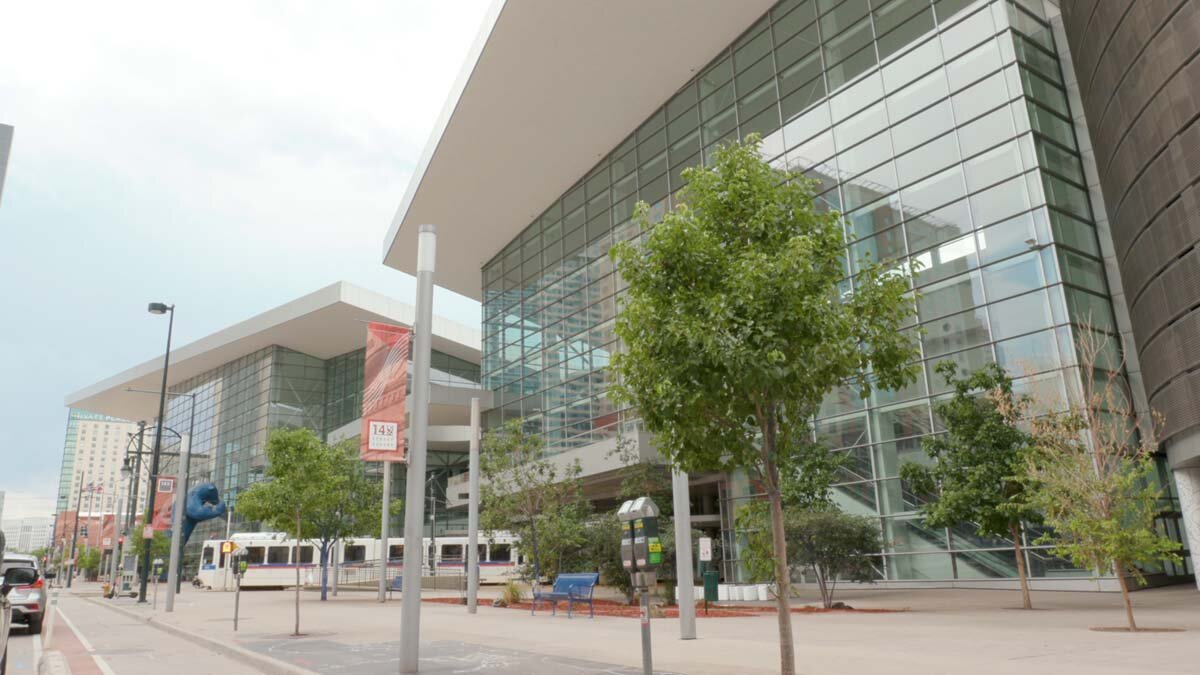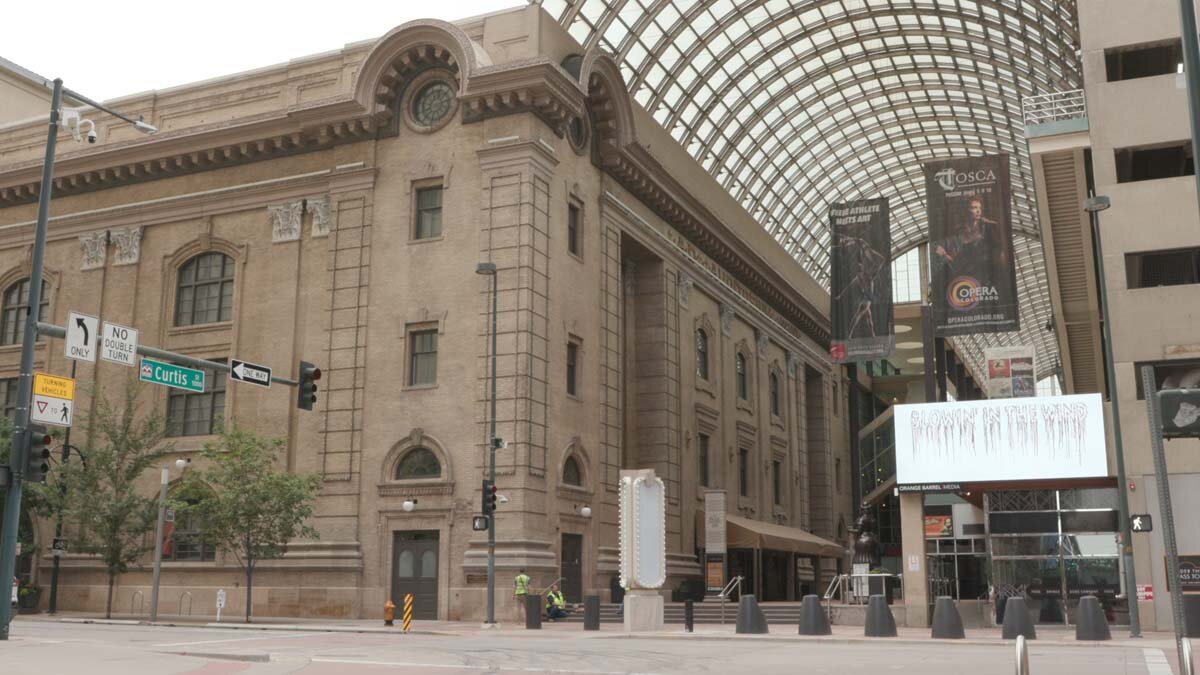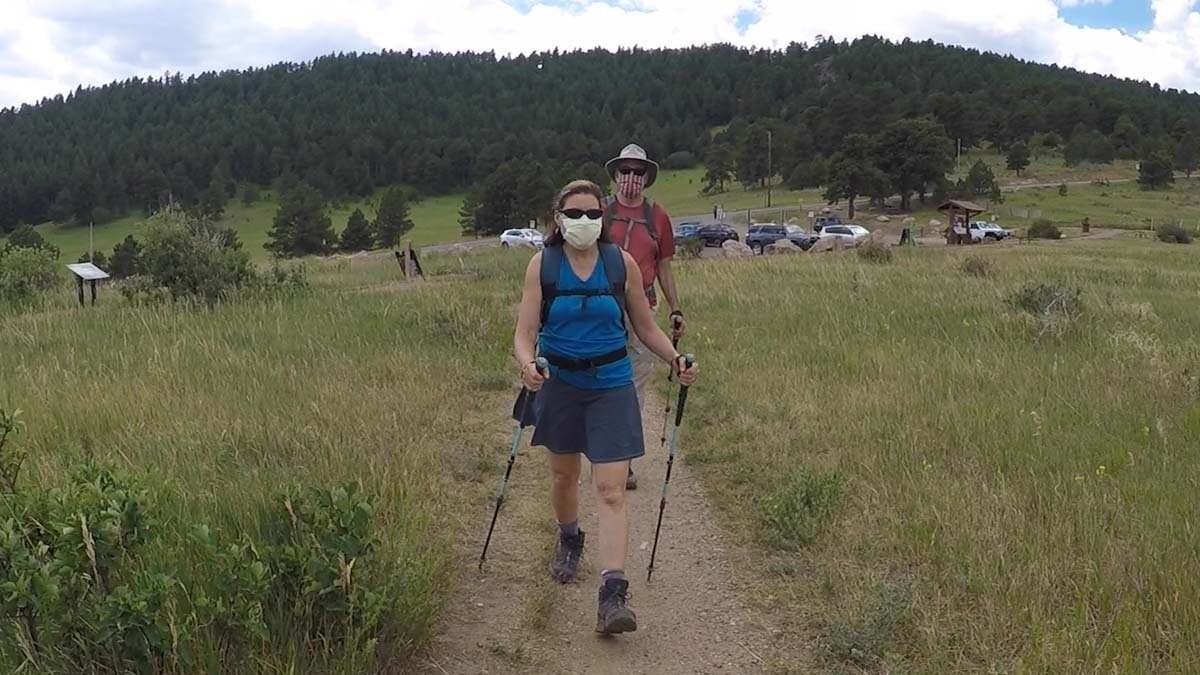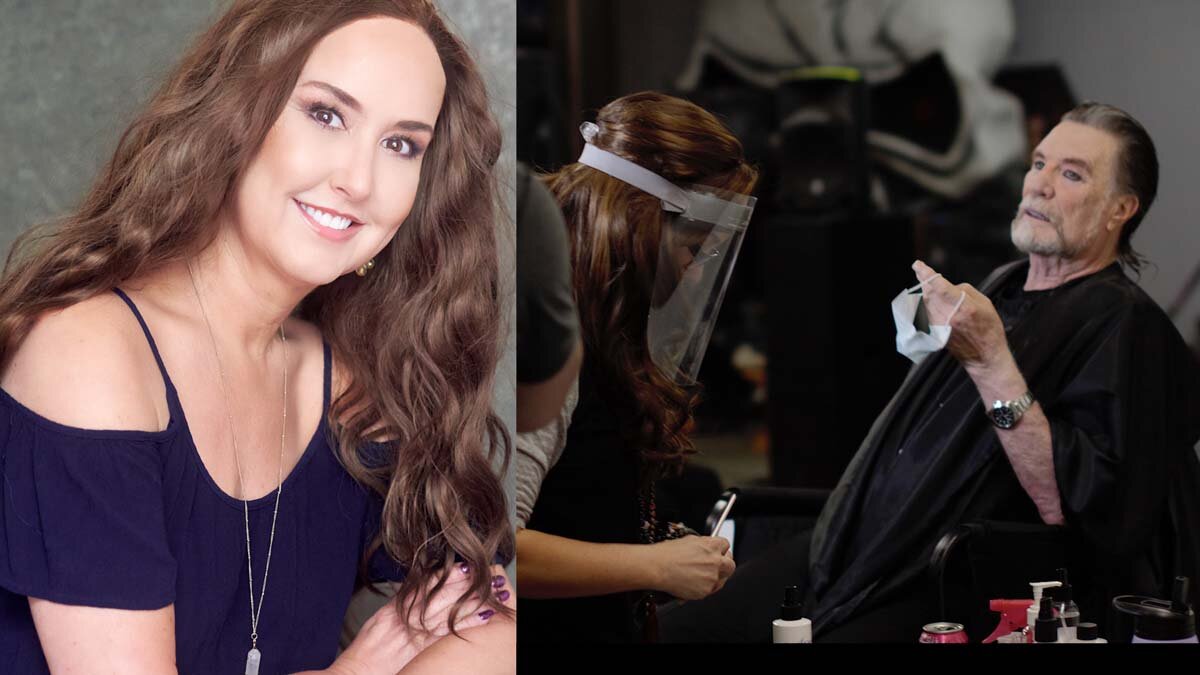Colorado’s entertainment industry; thousands without work look for ways to adapt

The first real signs of economic distress hit Colorado in mid-March with the cancellation of almost all entertainment activities due to stay-at-home orders.
Concerts, musicals, conventions, graduations, and performances of all kinds stopped. So did the careers and incomes of the skilled professionals who make them happen.
Stagehands, grips, makeup artists, theater electricians… thousands working behind the scenes in Colorado’s entertainment industry were left without work.
Do you know who gets the convention center ready for the countless exhibits? How about who lights the music stand for the symphony’s violinist? Or who transforms actors into zombies with elaborate special effects makeup for an independent film in Colorado?
Kevin Zegan can tell you. He’s the President of the stagehands union in Denver, IATSE local 7, and represents nearly 330 union members and two-thousand registered workers in the film, theater and exhibiting industry. He represents those who love supporting the arts, from behind-the-stage.
Since the COVID-19 pandemic shutdowns, almost all are unemployed.

“It really brought to a head just how much the entertainment industry and the trade show industry relies on mass gatherings of people. There's no way around that,” said Zegan.
“It's been a very challenging storm to weather because we don't see the light at the end of the tunnel until potentially January of next year, maybe even beyond that.”
IATSE7 has been working with technicians to help with unemployment questions and continuing education via socially distant classes. The goal is to give workers extra skills to keep them engaged and ready for work, when it returns.
Through Zegan, we met two union members willing to share a glimpse into their lives this summer.
He’s lit the stage at Boettcher Concert Hall for 30-years

Philip Hiester is used to the busy seasons and frequent long hours at Boettcher Concert Hall.
The venue is home to the Colorado Symphony and numerous other events every year. All get special attention from Hiester. He’s involved with every part of stage set up, especially the lighting.
“I will make sure that people are seen and lit and primarily that the musicians can see their notes,” said Hiester, who’s love for theater and live performances started at a young age. “I have always loved the performing arts. I've always loved working with audiences. That's really where the magic of theater comes in is from the energy of all of the people in the room together.”
For the first time in his decades-long career, he’s filed for unemployment benefits.
“Our job is to bring the show to the people and there were no people and there was no show and that's hard to reconcile,” said Hiester. “It's very unsettling because we don't know when we'll get back to it.”
Colorado’s hiking trails have become a regular destination and source of comfort for Hiester and his wife, a cardiac nurse at an area hospital. Both miss live performances and await their return as soon as safely possible.

Makeup artist completes training and creation of film-industry safety procedures
Cory Taylor Bryant owns a makeup design company and works regularly on the set of local film, TV and commercial productions. She also employs a team of four contractor artists.
“I've been successfully running this business and supporting myself solely as well as my team for 10 years now,” said Bryant. She’s known for her love of zombies as well as her extensive work with natural on-camera makeup design, hair styling and special effects makeup.

This is typically the time of year when Bryant is booked 6-days a week with multiple projects lasting through mid-November. Many days are 12-hours on set, or longer.
“I typically work on feature films, predominantly they’re SAG-AFTRA films. I had a full, beautiful, glorious best-year-ever of my life planned,” said Bryant. Then, film after film project got canceled or postponed.
SAG-AFTRA is the Screen Actors Guild - American Federation of Television and Radio Artists.
With a mortgage, HOA, medical bills and more stacking up, her work as a mostly 1099-Independent contractor with little W-2 income, has meant few unemployment dollars.
“If it weren't for the CARES Act, I wouldn't be doing okay. But now I can save money and try to bridge the gap between when I run out of my $109.00 a week from the State of Colorado in mid-September and when I can actually apply for pandemic unemployment based on my 1099 income,” said Bryant.
Through the process, she’s learned a lot and is sharing this knowledge with others in a similar situation.
She’s also immersed herself in online classes about advanced sanitation, bloodborne pathogens and viruses, and safety practices. All of this information is being used to draft statewide film industry protocols in hopes of bringing film work back to Colorado sooner than other parts of the county, if we continue to mitigate the spread of COVID-19.
“We have an opportunity to take advantage of, if we can get ourselves together. We have the skills. We have the talent. We need the discipline to follow the protocols,” said Bryant. She’s leading conversations in hopes of bringing more union productions to Colorado as soon as possible.
“We want to be the statewide standard and we want to keep our sets contamination-free, clean and working.”
Ready to adapt and to work
All three of our story subjects have a few messages to share:
- They are eager to get back to what they love.
- Wear a mask. It’s here to stay. Get used to it.
- Have faith in the creative industry. With approved medical and safety guidelines they’re confident in finding ways to safely bring entertainment and people back together.
Just maybe not as soon as hoped. Patience is needed.
“We are ready to go. I can't tell you how many times I get asked the same question, ‘When are we going back to work?’, and right now I don't know. You know it looks like probably January (2021) at the earliest. I wish I could tell you sooner. But we're ready, we're ready to go,” said Zegan.